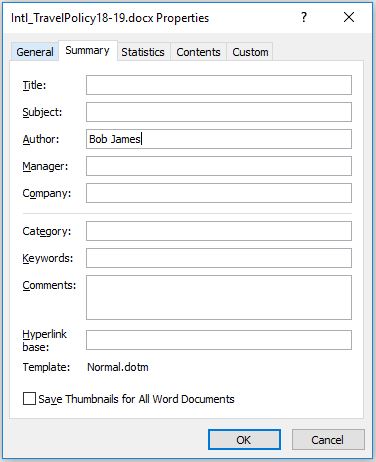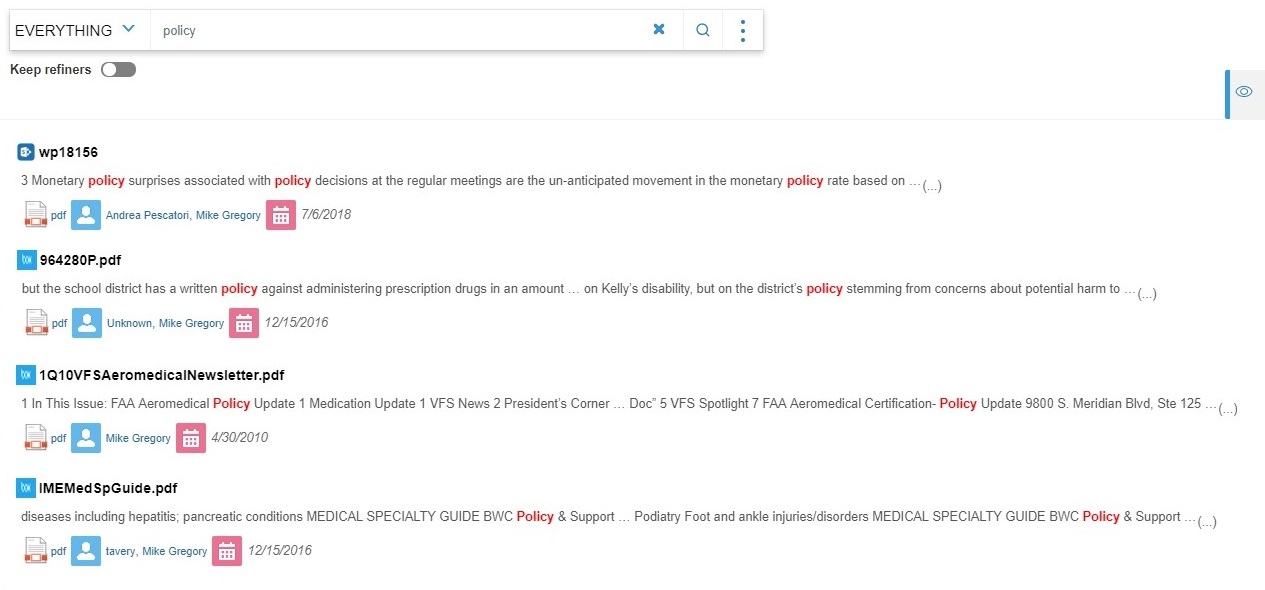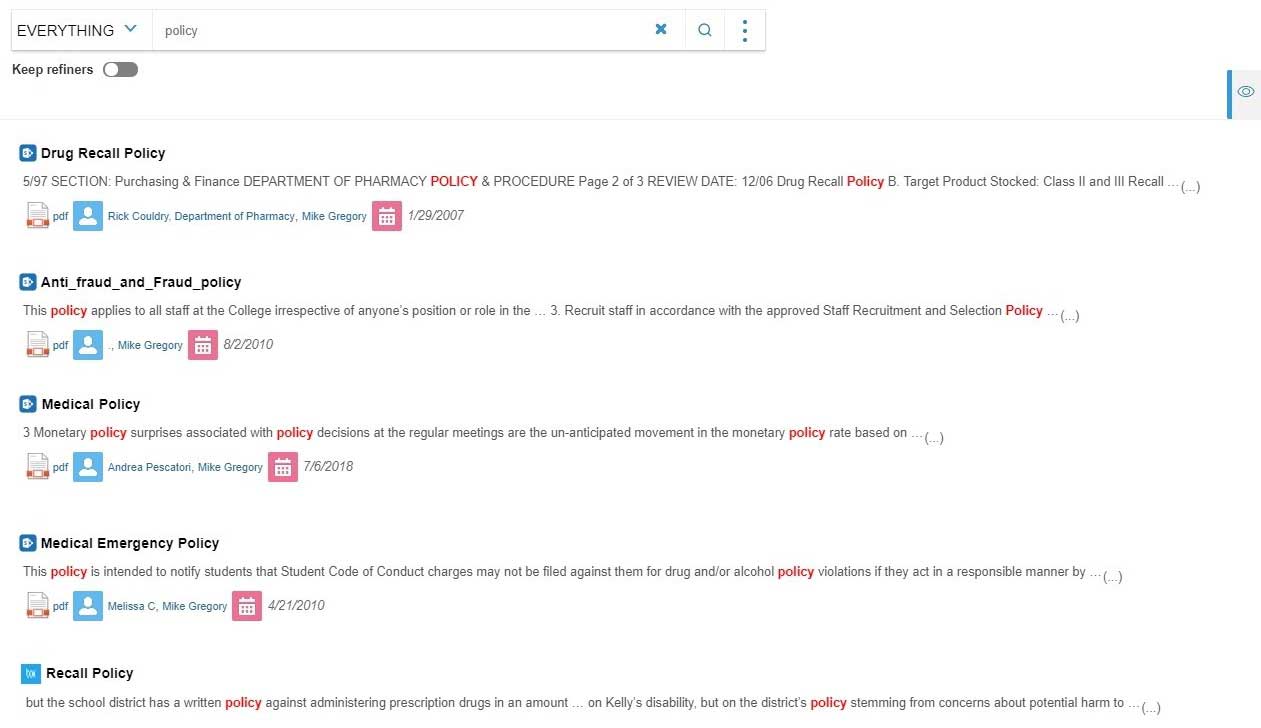Raise your hand: How often do you review the title of, say, the Word document you are writing or make sure the “Description” field is filled out before you publish and share it? If you are like most, the answer is “probably never!” Perhaps that’s why so many intranet search-engines teleport you to a dense jungle of illogical, garbled search results which are utterly useless. The filename becomes the title and old-fashioned search engines are, diplomatically speaking, poor at creating coherent descriptions or summaries. To add insult, you are nonchalantly told that there are hundreds or thousands of documents and pages that match your query, all looking just as garbled.
 Have you ever seen this dialogue box in Word, Excel or elsewhere? Like most knowledge workers, you probably don’t spend time on naming, describing, and classifying content. That’s why modern intranet search now relies on AI-driven automatic tagging and classification, which improves the quality of accuracy of the search, regardless of the platform content comes from. Some people call it an Internet-like search experience. All the heavy lifting is done by AI. Because content grows at exponential rates, the application of AI allows us to both re-classify old content (across different platforms and repositories) and continuously ensure that new content is appropriately labeled. Metadata is essential for “findability,” yet the vast majority of content within organizations has no metadata. Creating metadata is challenging and doing it by machine is the only practical way to get consistent, quality metadata on a broad basis. SharePoint provides a facility for referencing and managing metadata called the Managed Metadata Service (MMS). BA Insight, a Microsoft ISV partner, has AutoClassifier, which leverages MMS to provide a rules-based engine fully integrated with SharePoint.
Have you ever seen this dialogue box in Word, Excel or elsewhere? Like most knowledge workers, you probably don’t spend time on naming, describing, and classifying content. That’s why modern intranet search now relies on AI-driven automatic tagging and classification, which improves the quality of accuracy of the search, regardless of the platform content comes from. Some people call it an Internet-like search experience. All the heavy lifting is done by AI. Because content grows at exponential rates, the application of AI allows us to both re-classify old content (across different platforms and repositories) and continuously ensure that new content is appropriately labeled. Metadata is essential for “findability,” yet the vast majority of content within organizations has no metadata. Creating metadata is challenging and doing it by machine is the only practical way to get consistent, quality metadata on a broad basis. SharePoint provides a facility for referencing and managing metadata called the Managed Metadata Service (MMS). BA Insight, a Microsoft ISV partner, has AutoClassifier, which leverages MMS to provide a rules-based engine fully integrated with SharePoint.
What’s in it for you? A search-results page that is meaningful, descriptive, and relevant. Relevancy is improved because priority is given where search terms are found in the metadata. Also, faceted search (also called refinement or faceted navigation) can be used to quickly drill down into search results to get to the right information. Bottom line: Results in more productive knowledge-workers who are loyal to the platform. That’s good use of new AI technology.




